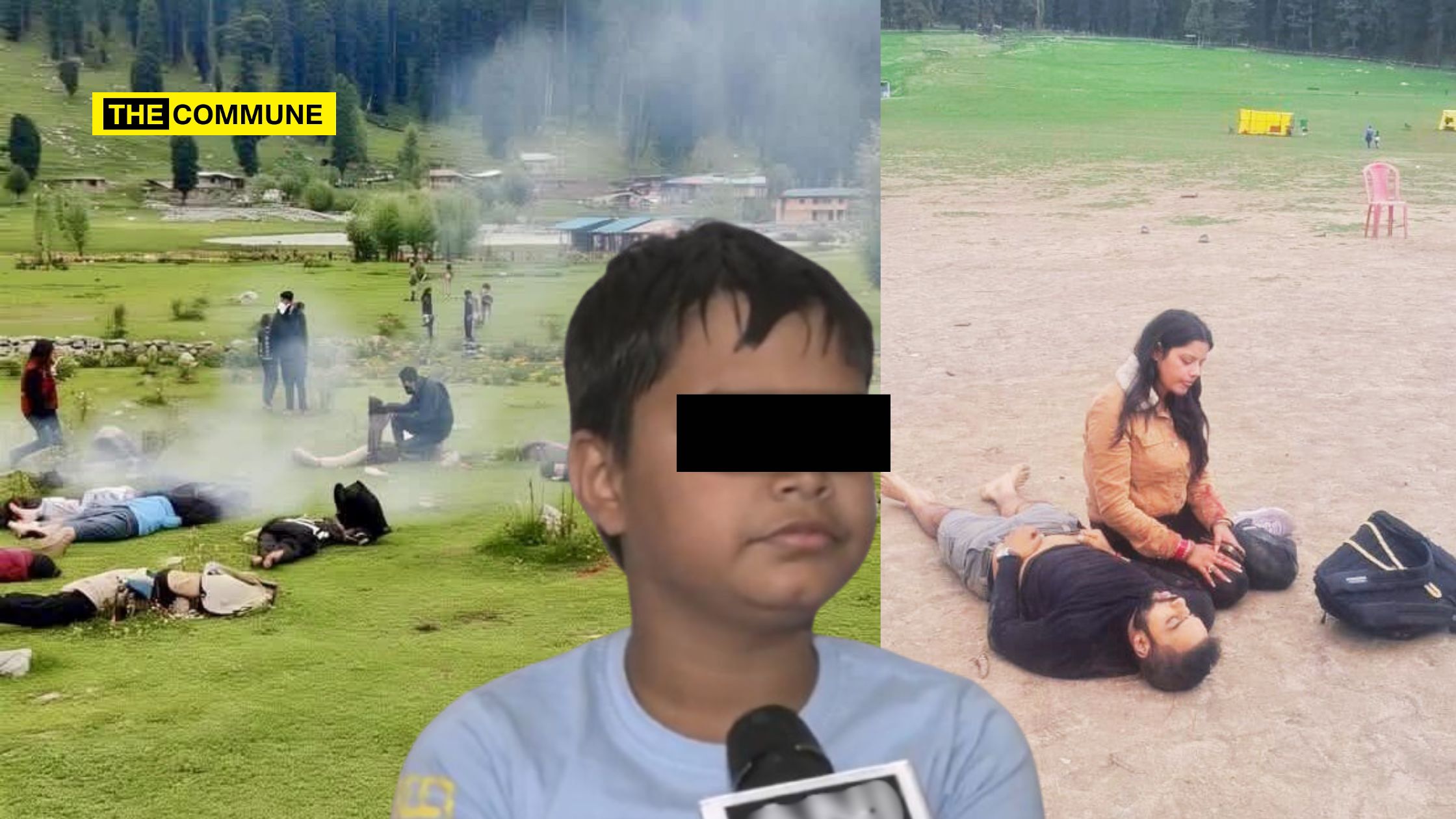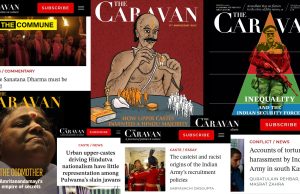
The tragic terror attack in Pahalgam, Jammu and Kashmir, on 22 April 2025, that took the lives of 28 innocent people, has sent shockwaves across India. The senseless bloodshed has left families devastated, and the grief is shared by citizens from every corner of the nation. However, it is the disturbing and heartbreaking testimonial from young Naksh Kalthia, whose father Shailesh Himmatbhai Kalthia was one of the victims, that has exposed the brutal reality of the attack—and in doing so, has delivered a resounding challenge to the political and intellectual elites who have long preached the myth that “terror has no religion.”
As Naksh recounts his harrowing experience, the chilling details are impossible to ignore. Amid the terror attack, the perpetrators singled out Hindu men, forcing them to separate from the others. They then demanded that the men recite the “Kalma”—a declaration of faith in Islam. Those who were unable to do so were executed in cold blood. The women and children were spared, but the men were subjected to a horrifying fate that exposed the true, religiously motivated nature of the attack.
Speaking to ANI, Naksh’s words are searing in their simplicity. He said, “We went to Pahalgam in Kashmir. We had seen 5 points in Pahalgam and out of that Mini Switzerland was at the top. We were there only for 10-15 minutes, we were hungry, so we were eating food. At this time, we heard gunshots. We asked the restaurant folks what happened, they were also not aware. When the gunshots became more, we understood that terrorists had entered the area, so we hid ourselves. But they found us. We saw two terrorists. I heard one of them ordering all the men to separate into Muslims and Hindus and then shot all the Hindu men. They did not ask anything else, just asked the men to segregate themselves as Hindus and Muslims and killed the Hindus. The terrorists asked the men to recite ‘Kalma’ three times. Muslims knew that language and they recited it thrice. All those who could not recite it were shot. Once the terrorists left, the locals came and said that all those who had survived should go downhill immediately. I was on the pony, and my mother and sister climbed down on foot. After we reached, the army arrived, maybe an hour or so after we climbed down from the point. The military base was there. We stayed there for a while and left for the hotel in the evening. The terrorists were not letting him (my father) speak at all…They did not say anything (to my mother) …”
He further said, “There were totally 20-30 people – Hindu men. I was behind my parents and sister so when my father was shot I did not see it, I couldn’t see it from where I was.”
When asked about the terrorists, he described them saying, “One of the terrorists was fair and had a beard. He was wearing a Mohemmedan-type cap and had a camera tied to his head. He was wearing a white T-shirt and black jeans. I don’t know if they were recording. I saw two of them but I don’t know if anyone else was there. They spared the women and the children and shot everyone else.”
#WATCH | Surat, Gujarat | Shailesh Kalthia, a native of Varachha area of Surat city, was killed in the Pahalgam terror attack on 22nd April.
His son, Naksh Kalthia, says, “We were at the ‘mini Switzerland’ point in Pahalgam, J&K. We heard gunshots… We hid once we realised… pic.twitter.com/t0tKrc5dtI
— ANI (@ANI) April 24, 2025
This heart-wrenching testimony from a young survivor challenges the false narrative propagated by many in India’s political landscape. For years, the Congress Party and its spokespersons like we have in TN – Lakshmi Ramachandran, the left-wing intellectuals, and their allies in the “Terror Has No Religion” brigade have attempted to downplay the religious motives behind terror attacks. However, Naksh Kalthia’s testimony paints a grim picture that simply cannot be ignored.
Here’s what Lakshmi Ramachandran said as soon as the news of the terror attack broke out. On her X handle, she wrote, “Attack by Pakistani terrorists on innocent tourists in Pehalgam is extremely disturbing. The way Godi media is reporting the ghastly attack, treading a careful line lest they displease Modi-Shah, is highly irritating. They are making this a Hindu-Muslim issue to please their bosses. They are claiming that the terrorists made sure that the victims were Hindus before shooting them down. Some of the victims are Tamils and Telugus we hear. How the hell will Pakistani terrorists distinguish between a Tamil Muslim and Tamil Hindu? Shame on you Godi media. You have no humanity left in you. INDIANS were killed and the perpetrators should not be spared.”
Attack by Pakistani terrorists on innocent tourists in Pehalgam is extremely disturbing.
The way Godi media is reporting the ghastly attack, treading a careful line lest they displease Modi-Shah, is highly irritating.
They are making this a Hindu-Muslim issue to please their…
— Lakshmi Ramachandran (@laksr_tn) April 22, 2025
The terrorists in Pahalgam did not treat their victims as faceless people—they identified them by their religion and separated them accordingly. The cold, religiously motivated execution of Hindu men stands in stark contrast to the claims made by political leaders and activists who continue to push the myth that “terrorism has no religion.” Naksh’s account reveals the painful truth: in this case, religion was central to the attack.
The attack in Pahalgam was not an isolated event. In fact, it is just the latest example of a long history of religiously motivated violence in Kashmir and elsewhere. Yet, time and again, the Congress-led opposition, leftists, and self-proclaimed secularists have dismissed such incidents as mere “violence,” refusing to confront the uncomfortable reality of Islamic terrorism. They continue to claim that terrorism is rooted in poverty, social inequality, or mindless extremism. But Naksh’s testimonial shatters this narrative and exposes the uncomfortable truth: terrorism is often a religiously fueled act.
Subscribe to our channels on Telegram, WhatsApp, and Instagram and get the best stories of the day delivered to you personally.




